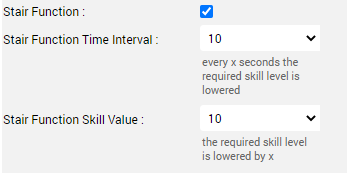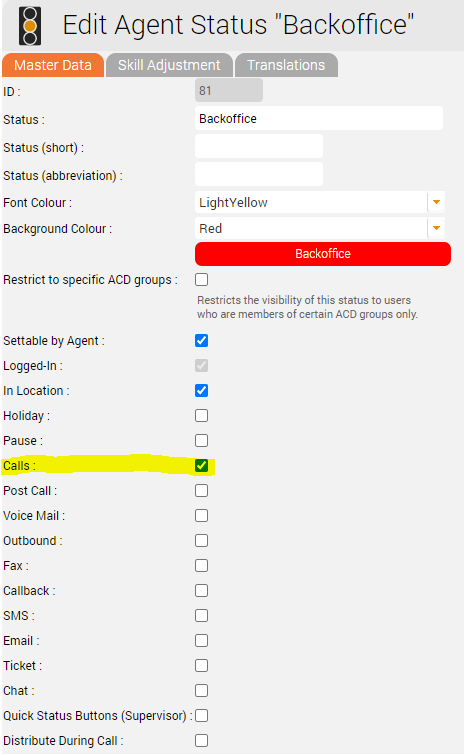
Ever wondered what the stair function in combination with skill based routing is good for?
It can help you to distribute calls and events more effectively by:
You can apply the stair function to ACD groups as follows.
This will sort agents according to their assigned primary skill level in the ACD group - i.e. the skill level assigned to an agent when they are made a member of the ACD group.
Given the following configuration:
| Agent | Skill |
|---|---|
| John Doe | 20 |
| Agent Ace | 100 |
| Agent Bob | 50 |
If all three agents are free, then Agent Ace will receive the first call, followed by Agent Bob, and then John Doe.
Without the stair function, this algorithm applies immediately. So as soon as a third call is received by the system, assuming the other two agents are still speaking, John Doe will be given that call.
However, John Doe may be a highly skilled agent also working on a second business process in another ACD group.
Maybe, John Doe shouldn't be given the call immediately, since a call to the other ACD group, i.e. his primary activity, received a few seconds later, would then have to wait?
Enter the stair function ...
We can decide how long the caller should wait before being connected to John Doe, by using the stair function.
Switch this on in the Distribution tab in the ACD group configuration:

| Agent | What happens |
|---|---|
| Agent Ace | Agent Ace, because he has a skill level of 100 in the ACD group, will always be considered for calls immediately, assuming he is free and logged in for telephony events. |
| Agent Bob | Agent Bob will receive calls for this group, but only after 50 seconds have passed (5 time intervals, each 10 seconds long, and each time the system looks for agents with 10 skill less). |
| John Doe | Like Agent Bob, he will receive calls laster. However due to his skill level, the minimum queueing time will be 80 seconds. This means, that if during these 80 seconds a call is received by the system for John Doe's primary activity, he will get this first. |
There are more tricks we can use. Just assume, that Agent Ace needs to send some important emails regarding his last call.
Agent Ace changes his ACD status to Backoffice Work.
We configure Backoffice work so that agents will continue to receive calls in this status:

We also configure a skill adjustment for the ACD group concerned in the ACD status:

In this example, we have configured that agents in the group "Zentrale" should be given a skill adjustment of 0.1 when they are in the status "Backoffice".
This means that when Agent Ace switches to backoffice, his skill assignment in the ACD Group will be multiplied by a factor of 0.1
In combination with the stair function, this means that Agent Ace will only receive calls from the ACD group after 90 seconds waiting time, when he is in the status Backoffice. |